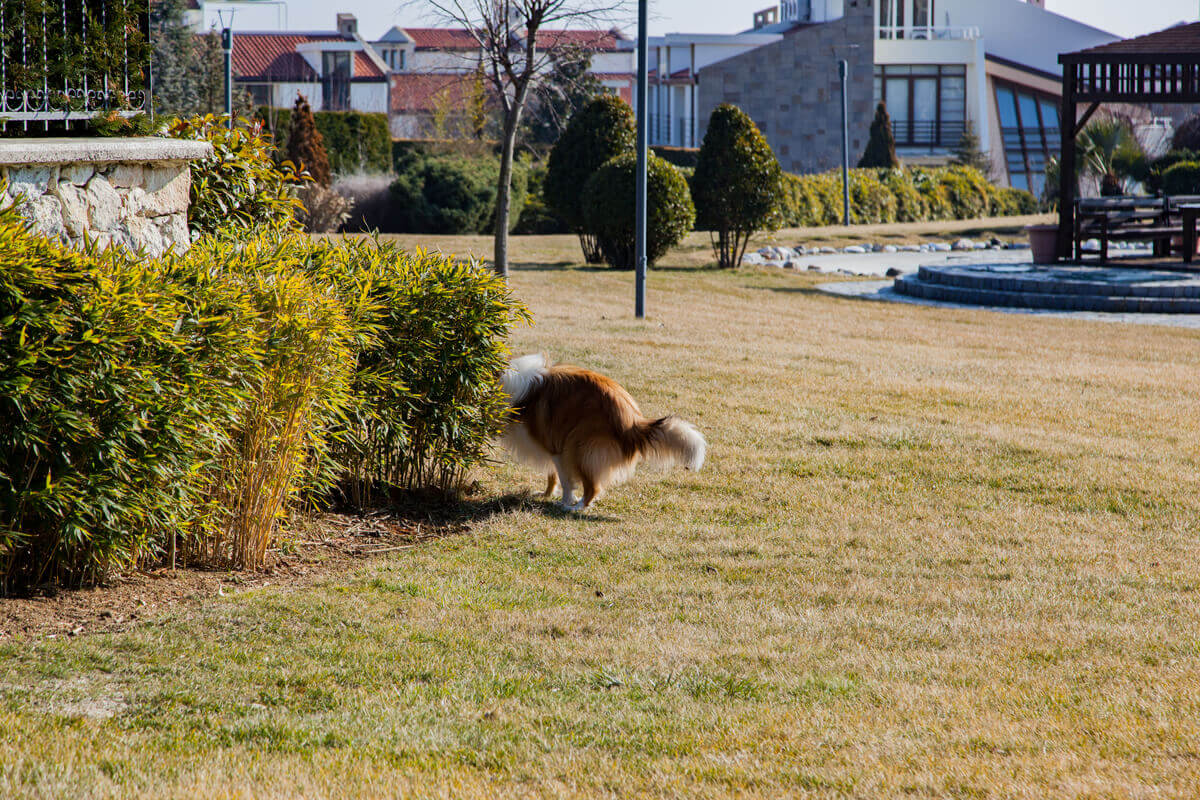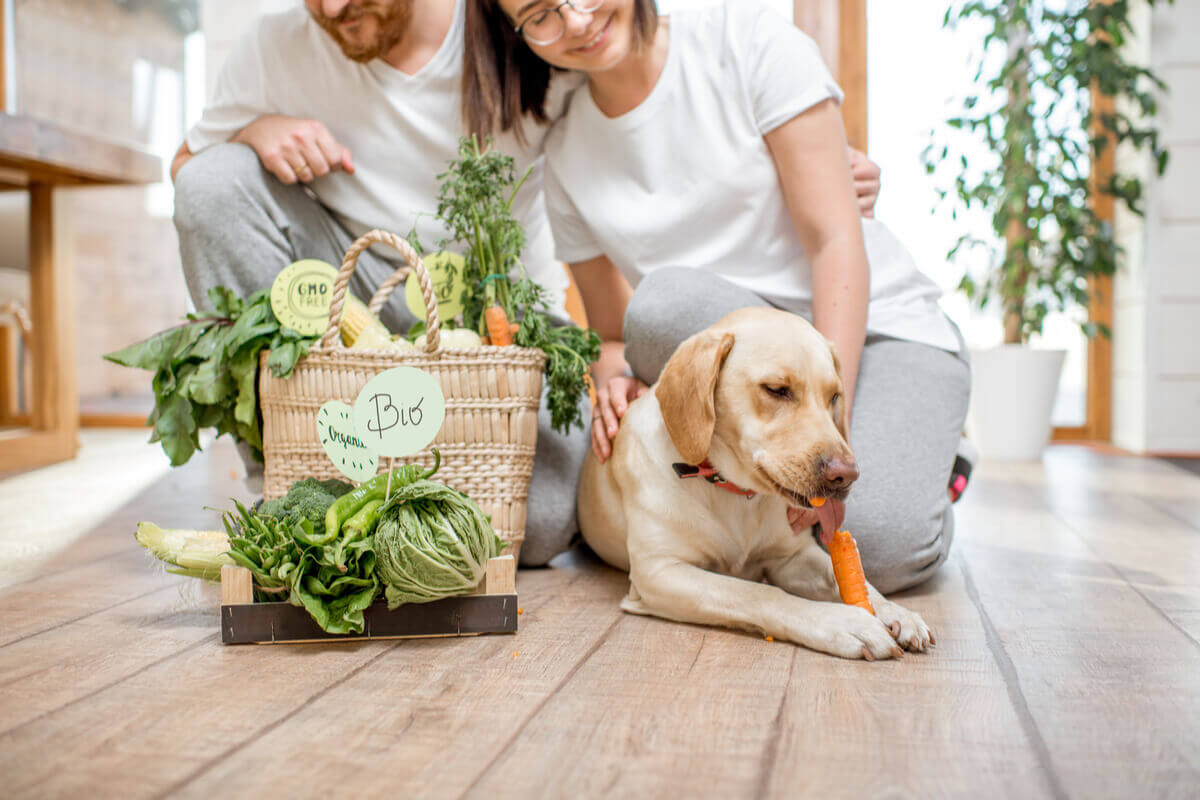What Should You Feed Dogs With Diarrhea?


Written and verified by the biologist Samuel Sanchez
One of the most common problems in the canine veterinary practice is diarrhea, among other gastrointestinal disorders. Knowing what to feed dogs with diarrhea is fundamental for their recovery. Whatever the reason, their intestinal tract is sensitive, and they require a diet that’s easily digestible.
As in humans, copious diarrhea in dogs can result in fatigue, dehydration, loss of electrolytes, and many other harmful symptoms for the animal. It’s up to owners to tackle the illness, so here we’ll show you what your dog’s diet should look like if he or she’s suffering from diarrhea.
What is diarrhea in dogs?
From a general point of view, diarrhea refers to the act of depositing liquid feces three or more times a day. At the same time, it refers to a situation in which the patient realizes one or more bowel movements with mucus, pus or blood in 24 hours or less.
Veterinary websites estimate that almost 30% of the dogs that come to the clinic are there because of acute diarrhea. In general, professionals estimate that this symptom usually heals itself in less than two weeks. Therefore, in many cases, there’s no need to go running to a specialist.
Just the same, if the diarrhea contains blood or pus, if your dog has a fever or other symptoms, or if the gastrointestinal malaise persists for more than two weeks, seeing a veterinarian becomes essential. Many cases of diarrhea are due to viruses, parasites, or bacteria, and these infections require specific treatments.

Proper nutrition in dogs with diarrhea
First of all, we need to emphasize that the most conservative treatment is to deprive your dog of any kind of food for a period of 12-24 hours. Otherwise, you can offer your pet very small pieces of food between long intervals. Even so, you must make water available to the animal at all times.
In general, diet changes in dogs with diarrhea are based on the following two points:
- It should be food that is easy to digest but provide a high energy intake in the form of protein and carbohydrates.
- It should contain fiber and other prebiotic elements, that is to say, that they help to restore the bacterial flora of the animal.
Specific food you can offer your dog
It’s best for a veterinarian to take charge of a dog’s diet in its most vulnerable moments. Even so, below we’ll offer you a list of certain foods for human consumption that are good to feed dogs with diarrhea:
- White rice: White rice is rich in vitamins and minerals, so it acts as an essential replacer of substances lost in the stools. It also provides a lot of energy.
- Boiled chicken breast without bones or skin: This meat has only 2% fat and a large amount of quality protein.
- Oats: Oatmeal has 1.7 grams of fiber per 100 grams of total weight, which isn’t an insignificant figure. As we’ve said, the fiber helps to restore the intestinal microbiota of the animal.
- Watermelon: Due to its high water content, this fruit is ideal to feed dogs with diarrhea. It’ll help you avoid dehydration caused by excess stools.
- Hard boiled egg: Hard-boiled eggs contain many essential vitamins and trace elements. This is why you can give one to your dog after a session of liquid stools.
In most cases it’s best for the basis of a dog’s diet to consist of rice and boiled boneless chicken for the first 12 to 24 hours after the appearance of diarrhea. As the dog gets better, the owner can start introducing kibble from its feed into this mixture.

Not everything can be solved from home
Despite the advice presented here, it’s essential that we make one thing clear: Not all diarrhea is treatable from home. Some of these clinical cases are caused by intestinal parasites or very aggressive bacteria. Therefore, your dog may need an antibiotic or antiparasitic treatment.
If your dog doesn’t improve with time, if he or she is lethargic, then go to the vet immediately. The same is true if you notice blood or pus in your pet’s stools. In the case of certain diseases, quick action can save your dog’s life.
All cited sources were thoroughly reviewed by our team to ensure their quality, reliability, currency, and validity. The bibliography of this article was considered reliable and of academic or scientific accuracy.
- Acute diarrhoea in dogs and cats: causes and faecal analysis, veterinarypractice.com. Recogido a 17 de noviembre en https://veterinary-practice.com/article/acute-diarrhoea-in-dogs-and-cats-causes-and-faecal-analysis#:~:text=In%20terms%20of%20prevalence%2C%20one,episode%20of%20diarrhoea%20within%20the
This text is provided for informational purposes only and does not replace consultation with a professional. If in doubt, consult your specialist.